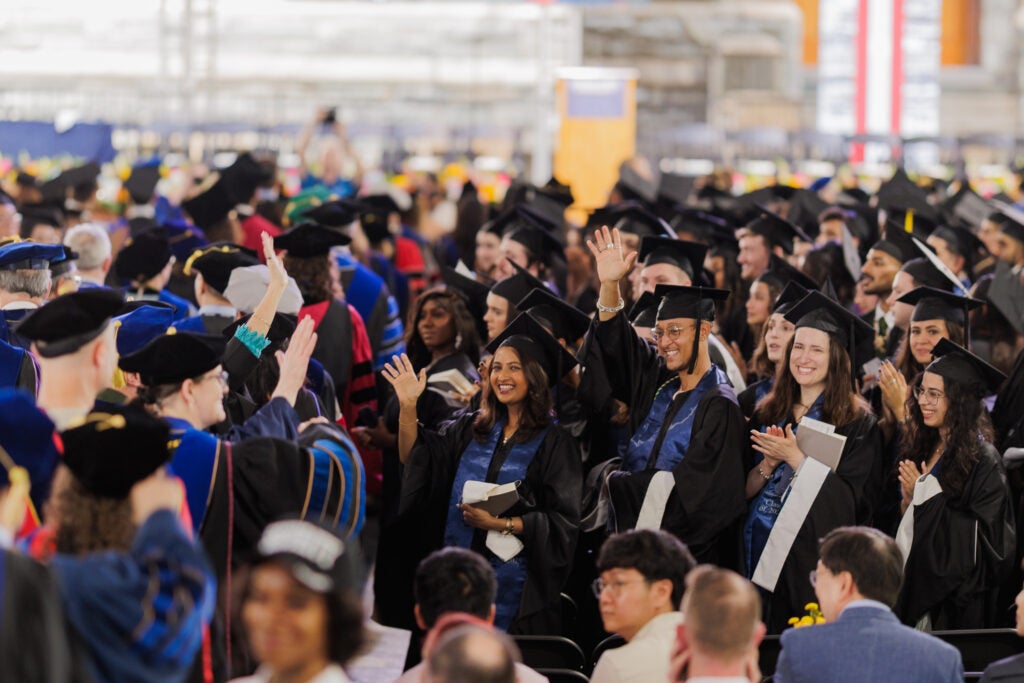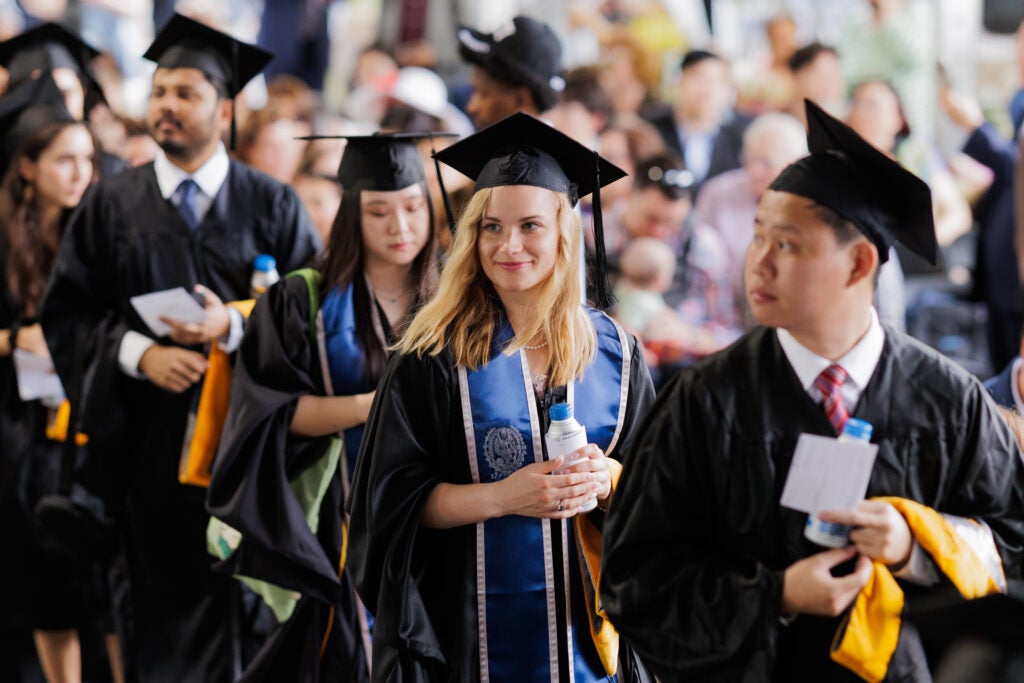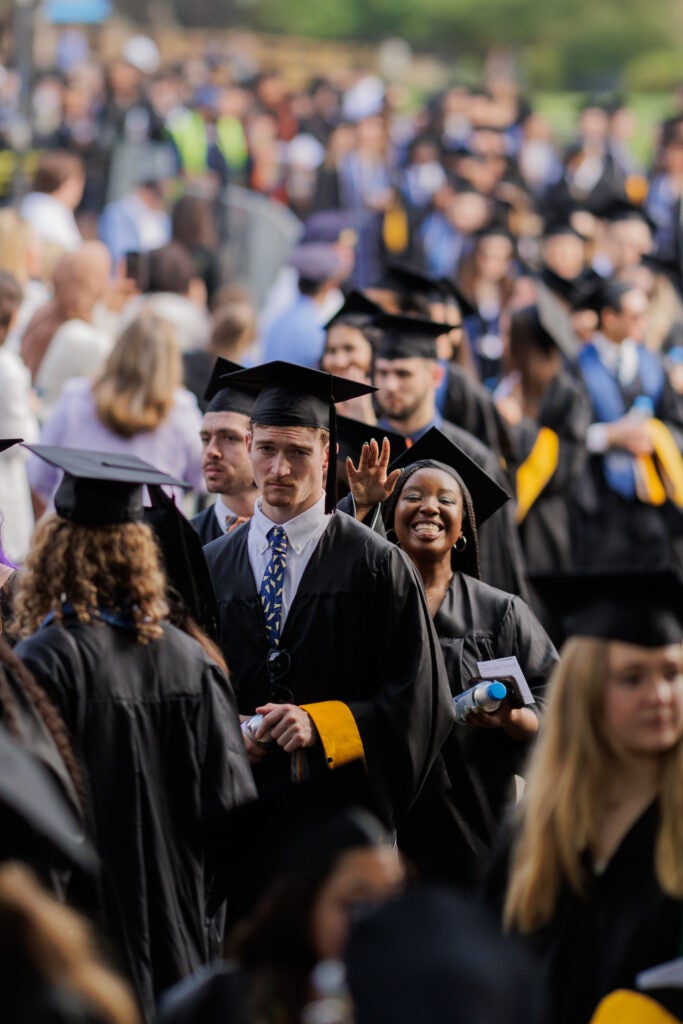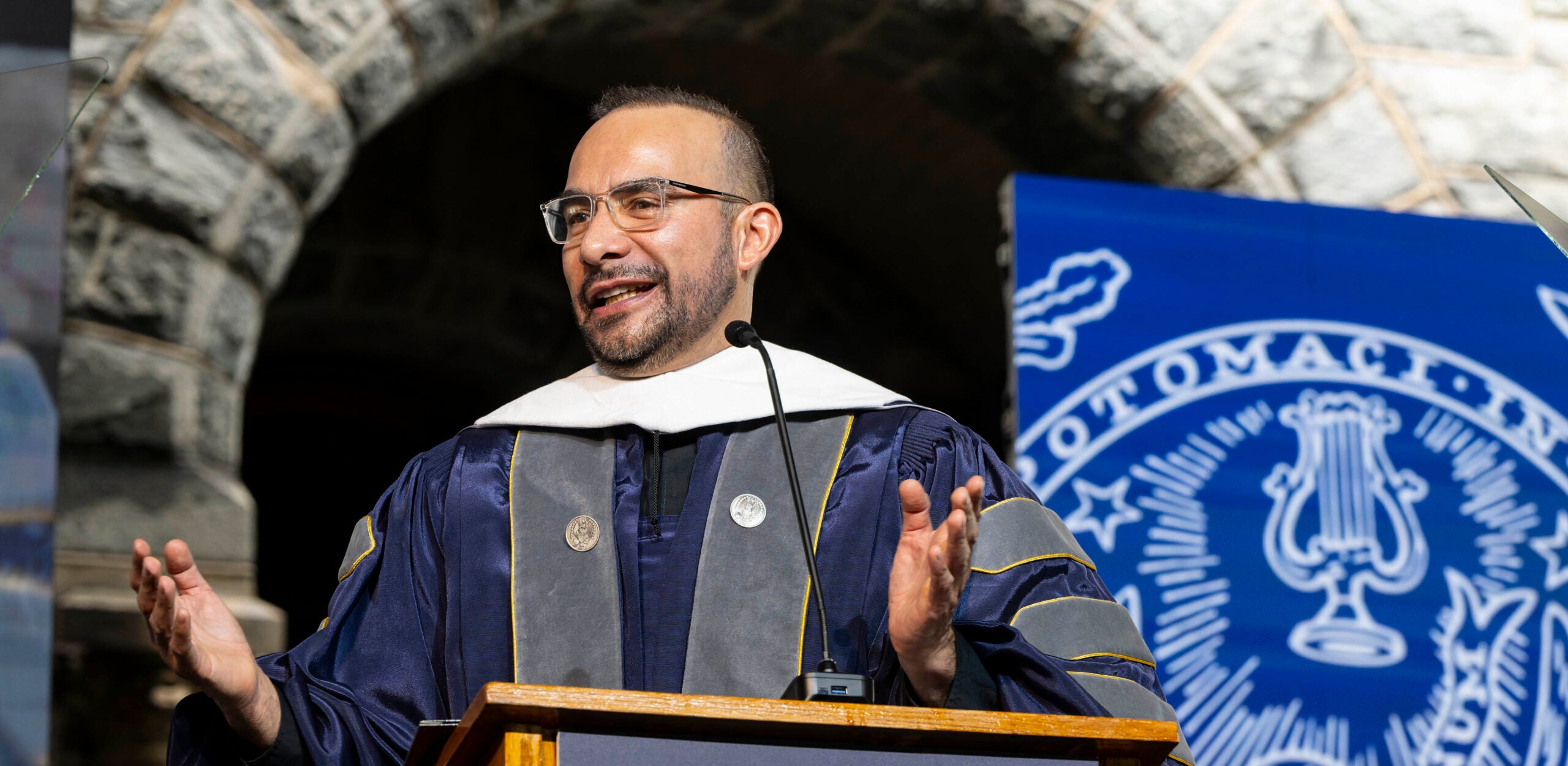Jesuit Urges Graduate School Class of 2025 to Be a ‘Defender of Hope’ in Graduation Address
With freshly donned academic hoods, 922 students from Georgetown University’s Graduate School of Arts & Sciences, including Biomedical Graduate Education, crossed the Healy Lawn’s commencement stage on May 16.
Nine hundred and twenty-three degree recipients, that is, counting a Jesuit priest.
Rev. Luis Arriaga Valenzuela, S.J., a legal scholar and the president of the Universidad Iberoamericana in Mexico City, received an honorary Doctor of Humane Letters for his extensive human rights advocacy for Latin American immigrant populations in the U.S. and across Mexico.
The Jesuit values that have guided Arriaga throughout his work formed the keystones of his commencement speech to the new graduates. In “a world filled with challenges and opportunities,” Arriaga advised the graduates to commit themselves to justice, cultivate discernment in their inner lives, and maintain their responsibility and service to others.
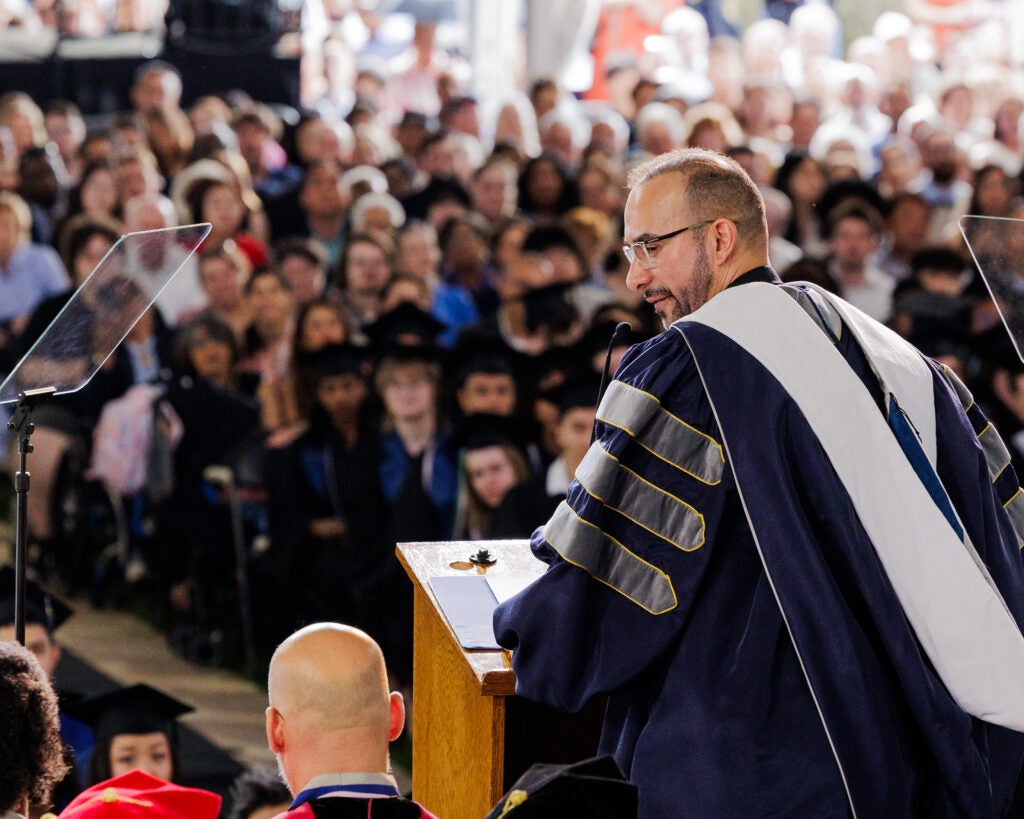
“Embracing responsibility for the world is always worthwhile,” Rev. Luis Arriaga Valenzuela told the graduates. “As you move through life, reflect on the sense of responsibility you have developed here at Georgetown with this extraordinary faculty.” (Photo by Elman Studios)
Words of Wisdom
Arriaga began his speech by explaining that he learned English by watching American TV shows in his native Tijuana, Mexico. He credited the 1950s sitcom “I Love Lucy” for his accent.
“As you can imagine, my first English teacher was Lucille Ball — but my pronunciation teacher was Ricky Ricardo,” Arriaga said.
As he grew up and entered the legal field, Arriaga found that the idyllic settings of the American TV programs he watched stood in stark contrast to the realities of life in contemporary Mexico. After starting his career in corporate law, Arriaga felt called to a higher purpose to serve others. He joined the Society of Jesus and pivoted to human rights law to defend vulnerable communities.
One case in particular, Arriaga told the students, continues to shape his worldview to this day. Over several years in the mid-2000s, Arriaga and the Miguel Agustín Pro Juárez Human Rights Center successfully petitioned to free a wrongfully incarcerated Indigenous woman named Jacinta from prison. Eventually, the Mexican government officially exonerated Jacinta and issued her a public apology, he said.
“Her daughter urged us to keep working towards justice, ‘until dignity becomes a habit,’” Arriaga said. “‘Hasta que la dignidad se haga costumbre.’ Jacinta’s daughter reminded us that dignity is not yet a norm in our societies. To make it a reality, we must constantly reflect on how we treat others, especially the most marginalized.”
He said that discernment, a Jesuit value that involves education and self-reflection, is a key part of the fight for justice.
“It implies reading deeply, listening without reacting, avoiding extremes and staying open to others’ perspectives, because even those we disagree with can teach us something,” Arriaga said.
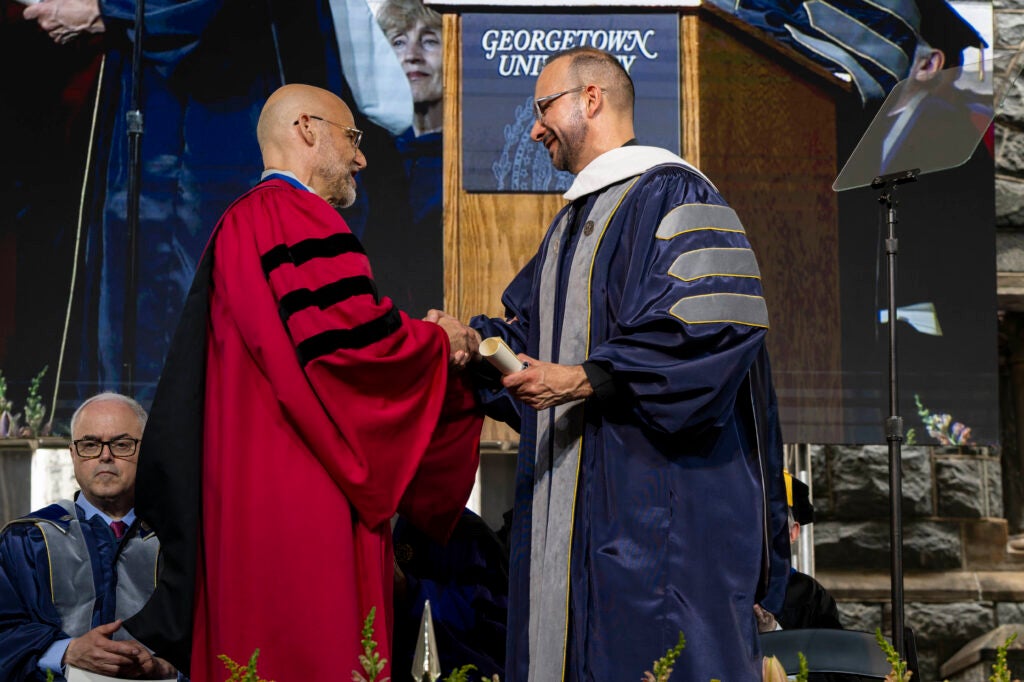
Alexander Sens, dean of the Graduate School, shakes Arriaga’s hand after conferring upon him an honorary Doctor of Humane Letters.
Some of his greatest lessons in discernment came from his time pursuing additional graduate degrees in the U.S.: a master of laws in international law and justice from Fordham University and a doctor of education in educational leadership for social justice from Loyola Marymount University, all while working with migrant families and young undocumented immigrants.
But Arriaga said it is not enough to be educated. He encouraged students to use their education to make informed actions and defend the neediest in their communities.
“Embracing responsibility for the world is always worthwhile,” he said. “As you move through life, reflect on the sense of responsibility you have developed here at Georgetown with this extraordinary faculty.
“Be a defender of hope. In times of frustration, stand firm, believing that individuals and communities can always grow and give more. Be a defender of justice for our common home, for others, for freedom, for equality for all.”
Lifelong Learners
Walking the stage at the May commencement were 549 graduate students from the Graduate School of Arts and Sciences and 373 from the Biomedical Graduate Education program.
These new alumni join a celebrated group of scholars, healers and researchers who walked Georgetown’s campus before them. But like their predecessors, their lifelong learning is far from over, Interim President Robert M. Groves said.
“You re-enter a world full of urgent needs and complex challenges,” Groves said. “We ask you to please take with you the discipline you’ve refined here: critical inquiry, thoughtful dialogue and most important, deep, sincere listening.”
